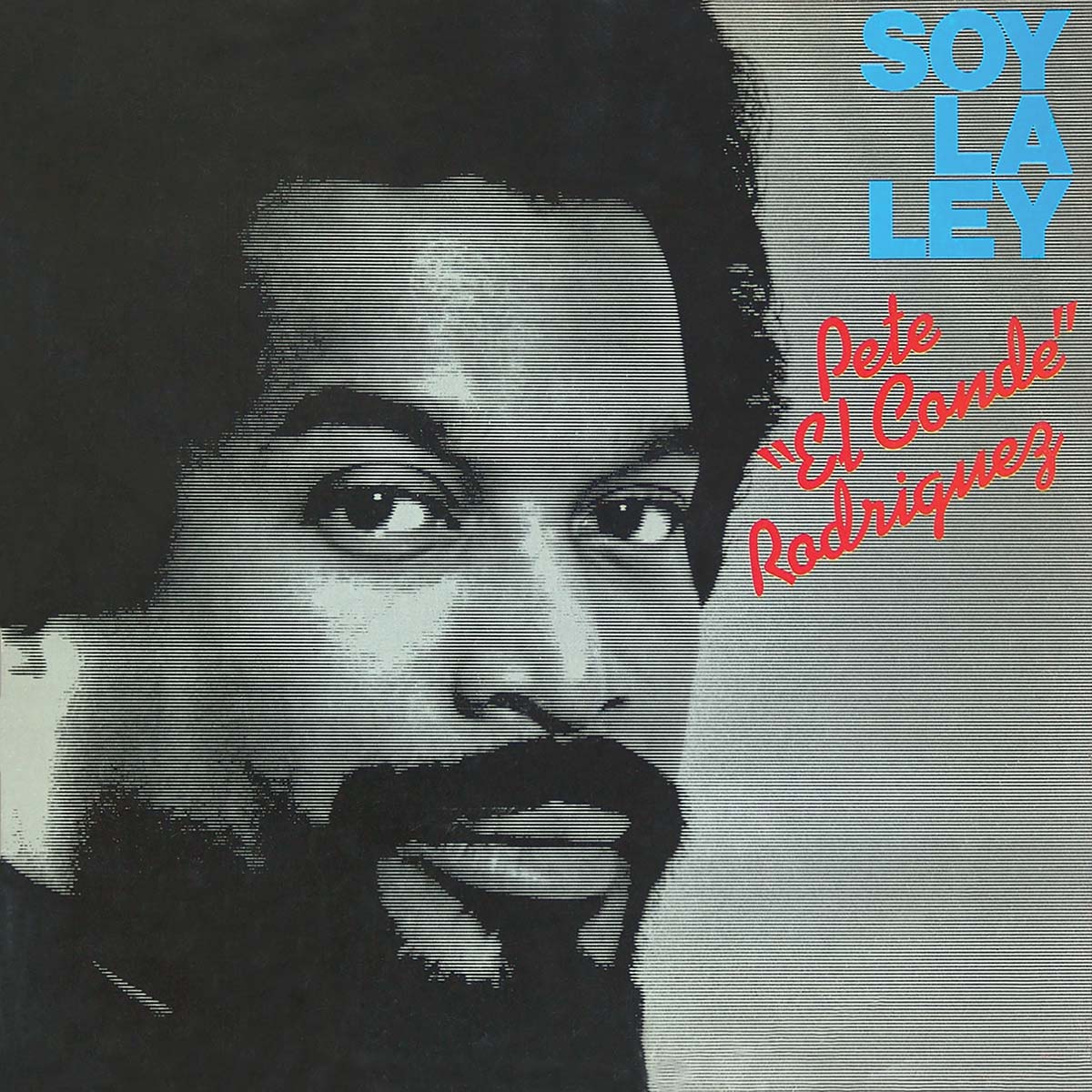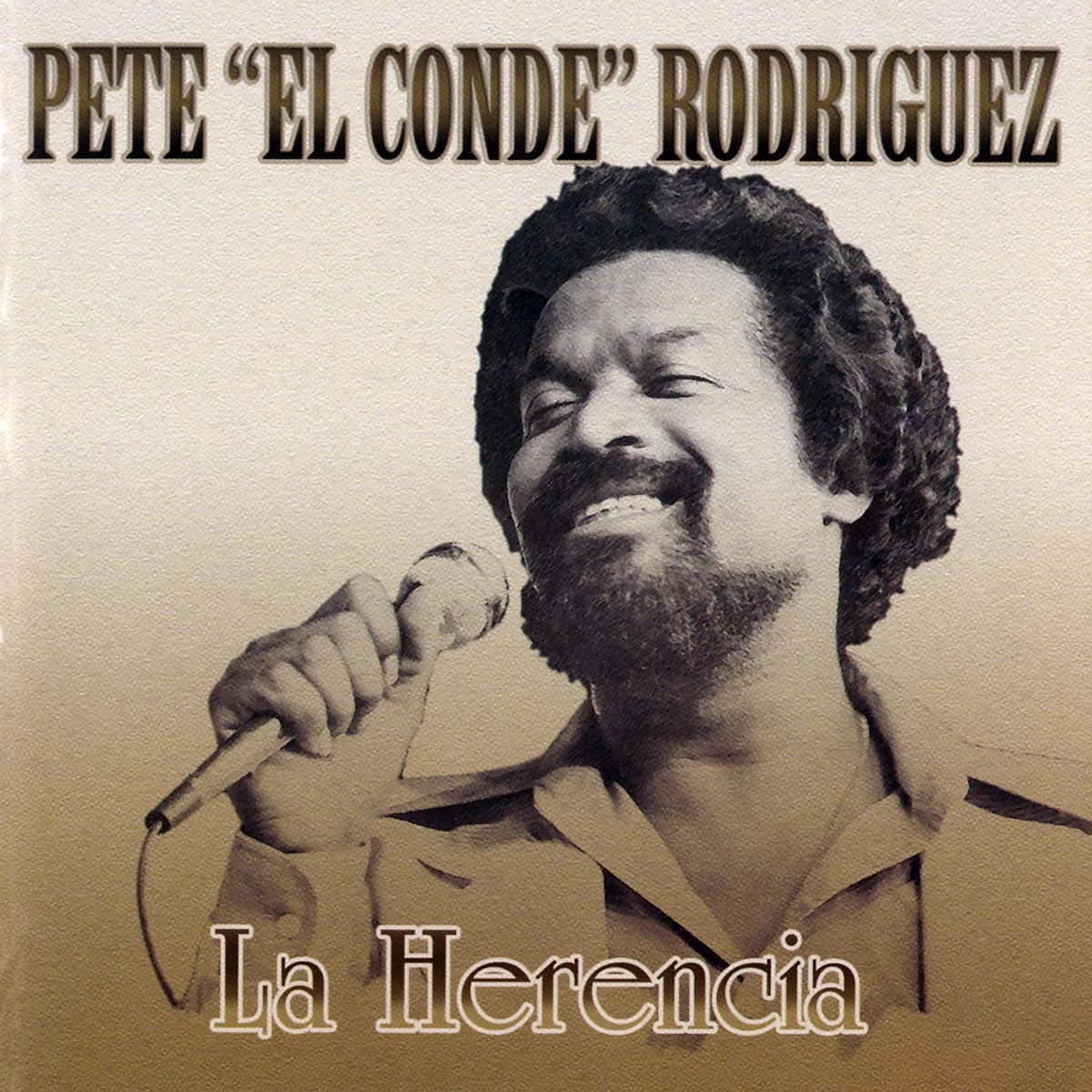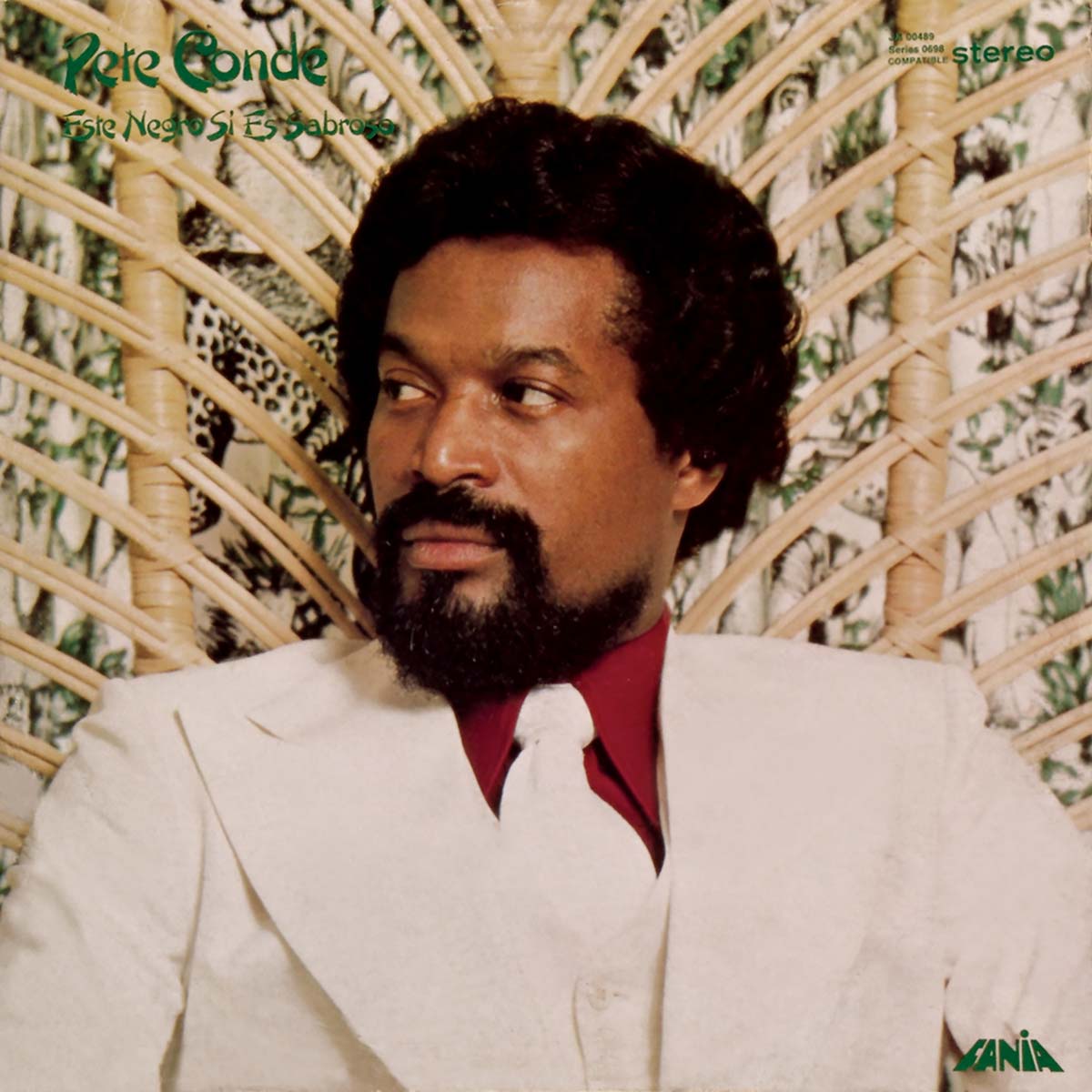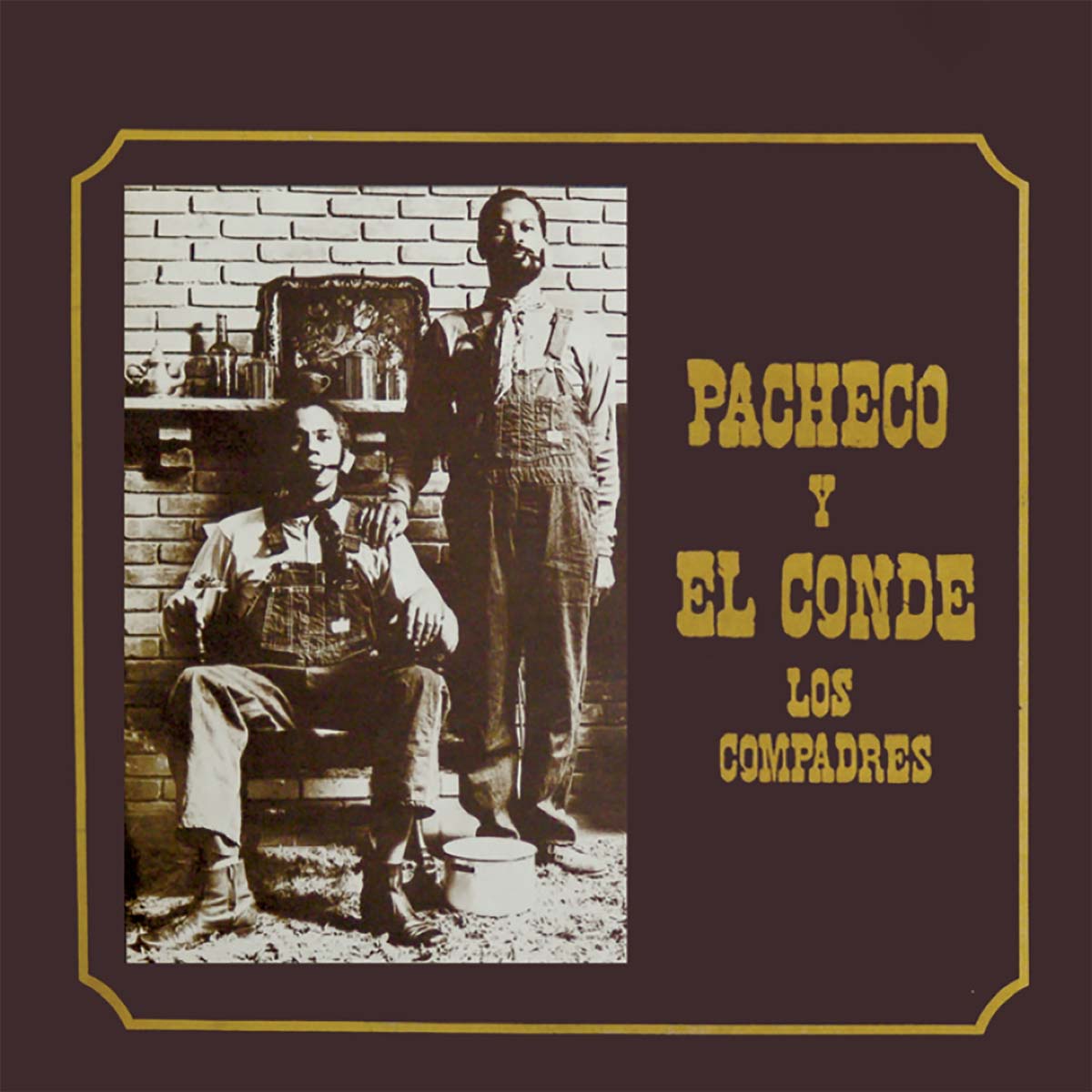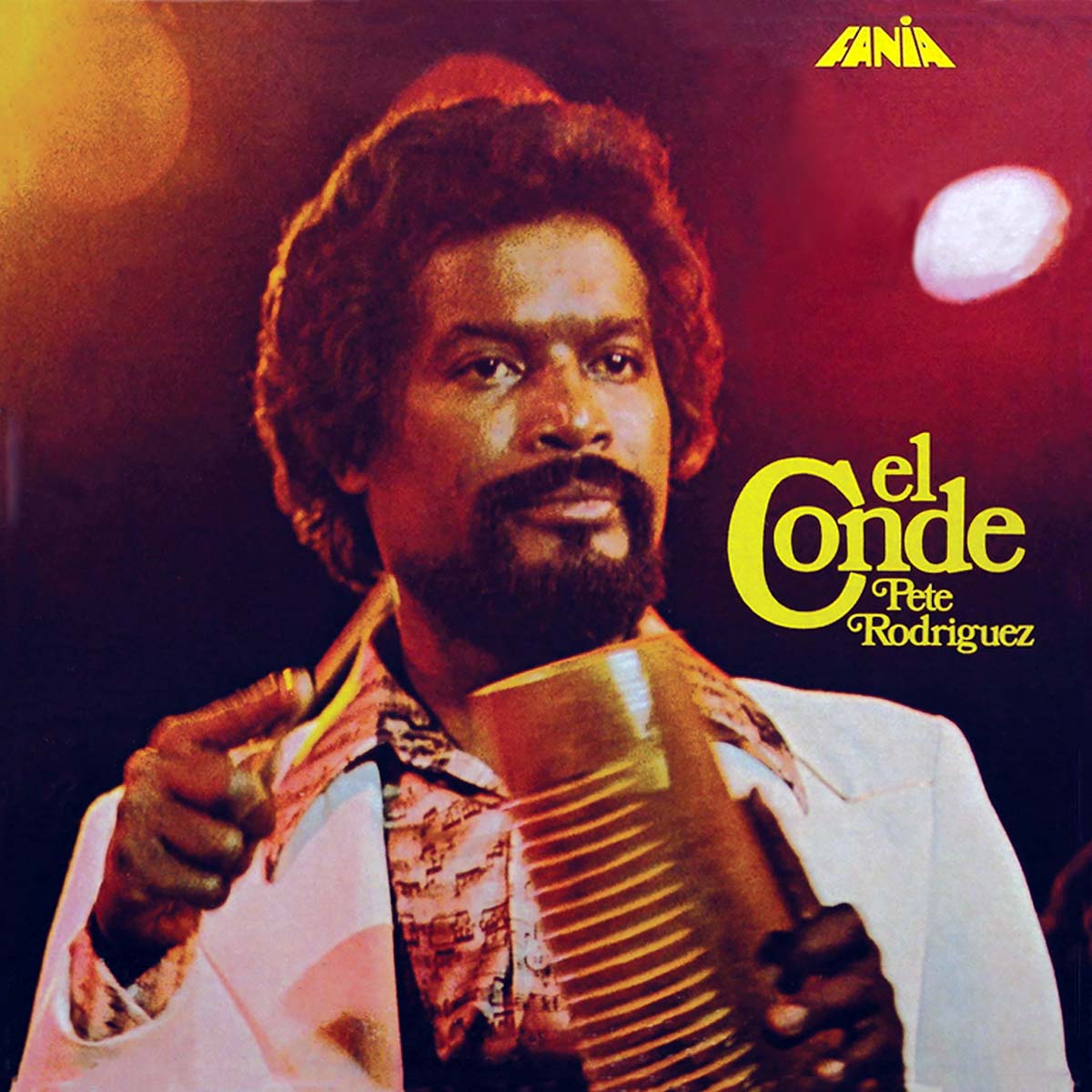
His first solo recording after making his name as the sonero (improvisational singer) for Johnny Pacheco’s hot conjunto sound, Pete El Conde Rodríguez earned the title of Best New Band the following year in the Latin New York Magazine music poll. And with good reason, this one rocks from start to finish.
Fania was at its zenith in 1974 having performed in Zaire, Africa, for the Muhammad Ali/George Foreman Rumble in the Jungle boxing match concert. It was a Motown meets salsa showcase featuring the Fania All Stars alongside James Brown, Stevie Wonder and B.B. King.
As James Brown sang Say it loud, I’m black and I’m proud, Pedro Juan Rodríguez Ferrer (as he was christened in Ponce, Puerto Rico) personified African majesty blessed through musical skill. With themes of black pride, slavery and suffering, Pete’s smooth and elegant stage presence, smoky improvised vocal phrases, all executed while playing hand percussion and dancing, catapulted him to the top of the bandleader heap.
A saucy son montuno, “El Conde Negro” is Pete’s calling card where he paves his musical way as he identifies himself as the Black Duke. “Babaila” tells the tale of a young black boy while “Un Toque Pa’ Yambao” is a musical tribute to an enslaved African who knew how to defend his own.
Pete began learning how to defend his own the moment he got to New York. He played bongos when he was five years old in his father’s quartet. But after his father’s death, Pete was shipped to New York at 12 to begin his journey to manhood. Taken directly to 104th and First in East Harlem, he quickly learned the dividing line between the Italians from Pleasant to Third Avenue and the Blacks from Lenox to Seventh. After graduating high school, he was drafted and came face to face with raw racism while stationed as a paratrooper in the separated South. He clung to his Afro-Boricua identity as strongly as he remained in the camp to avoid the humiliation of segregated bathrooms, restaurants and stores.
“Babaila”, in particular, is sung with vocal and brass piercing passion. A hair-raising lament, “Babaila” tells the tale of a young child who’s separated from his family and sold at the slave market. Pete’s gypsy sounding chant, Yo no quiero morir en cadenas (I don’t want to die in chains) is a gut wrenchingly, tear welling song.
“Los Comprades” underscores the importance of the role of the god parent. Johnny Pacheco and Pete were compadres, if only through their musical prodigies, and in this recording you can hear Pacheco in the chorus. But neither arrangers or musicians were credited so it’s not clear if it’s Justo Betancourt or Adalberto Santiago on second voice or if it’s Charlie Rodriguez or Nelson Gonzalez on third .
Whoever is playing, the undulating montuno vamping and innovative tres solo on this tune ends in a Borincana theme, proving that three cups of Cuba and one pint of Puerto Rico were very much the mix of salsa de Nueva York.
Besides the dance music, the two boleros showcase the visceral congo sounding, smooth flavor of Pete El Conde that’s in pitch and on the mark.
The year before his death, I had the privilege of opening for Pete with a small bomba and plena folkloric group. He was not only happy that I was performing music again, but lamented that he had little opportunity to sing his native rhythms in a dance format, since, as he recounted, Fania was hot for the Afro-Cuban conjunto style popularized by Pacheco during the salsa era.
We hung out that night and talked about the Cuban and Puerto Rican masters who make up the rich fabric of this music. He told me his next project would feature those boricua beats, but fate took its turn and the Black Duke of Afro-Caribbean pride passed before closing the circle of his musical journey.
Credits
Chorus – Johnny Pacheco, Adalberto Santiago, Raymond Castro,Roberto Torres
Producer – Jerry Masucci.
Recording Director – Johnny Pacheco
Arrangements – Bobby Valentin (“Blanca Paloma”, “Perdon Y Olvido”,
”Fiesta En El Cielo”, “Lo Quiso Dios”), Jose Febles (“Los Compadres”, “Soy Guajiro De Verdad”), Louie Cruz (“Un Toque Pa’ Yambao”, “Sombras Que Paso”), Louie Ramirez (“El Conde Negro”)
Engineer – Jon Fausty
Original LP Cover Design – Izzy Sanabria, Walter Velez (WE-2 Graphics Designs Inc.)
Original Cover Photo – Tom Monaster
Original Liner Photo – Lee Marshall
Recording – Good Vibrations Sound Studios
Written By Aurora Flores


